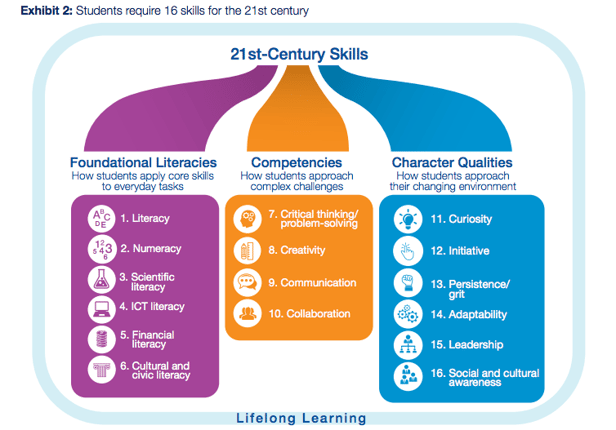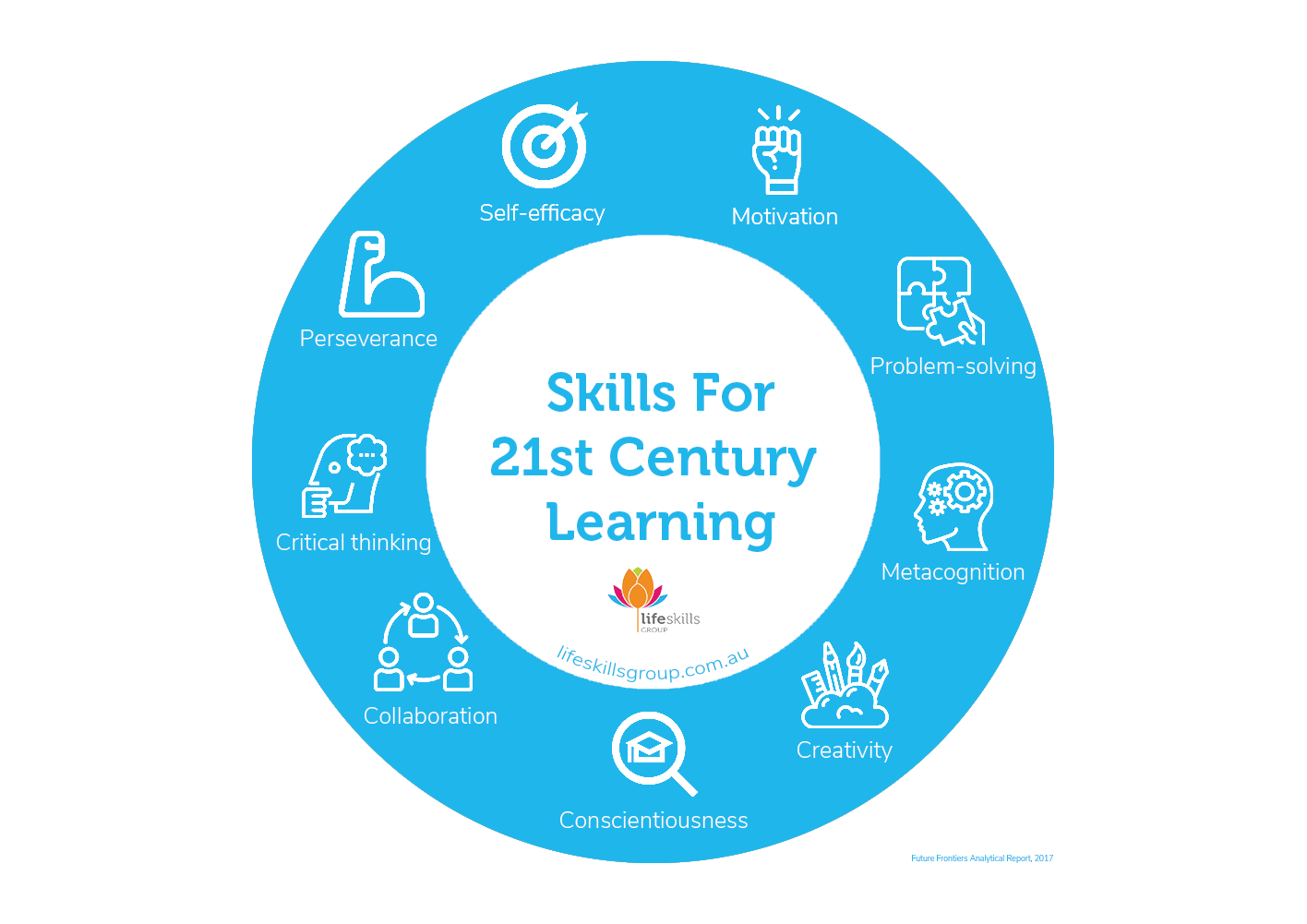We see that trends in technology, education and the economy are moving towards automation. This change in the world of work means it is crucial to prepare younger generations now, and in the near future with the tools to thrive in an ever-changing world.
One report published by Dell Technologies and authored by the Institute For The Future (IFTF) and a panel of experts from around the world, found that 85% of the jobs that will exist in 2030 haven't even been invented yet. [source]
Although there has been criticism about how accurate this claim may be, there’s no doubt that education leaders and policymakers need to be aware of the changing environment that is beginning to present itself as we near the end of the first trimester of the 21st century.
What the research says about 21st century learning
Various frameworks have been established in OECD countries which outline the core skills needed for 21st century learning, in order to set up young people with skills to thrive in a changing world, including, handling stress, building resilience and improving self-regulation.
For example, research from the World Economic Forum New Vision For Education Report, 2015 stated that there are 16 core skills for 21st century learning across 3 key areas: foundational literacies, competencies and character qualities. See the full report here.

It’s important to understand that being flexible is central to growing with the changes of the 21st century. Skills may develop and evolve, but it’s the job of education leaders and policymakers to grow and progress with these changes.
More recently, The NSW Department of Education (DoE) published an evidence-based review surrounding key skills for the 21st century where it was found that 5 skills and 4 dispositions were consistently focussed upon across all the existing research, practice and policy examined. These were distilled down into: problem-solving, metacognition, creativity, collaboration, critical thinking, self-efficacy, motivation, perseverance and conscientiousness.

These skills and dispositions are of optimal importance to teach to children at a young age, as they have directly resulted in reduced anxiety, stress and improved success within academic learning and ultimately their jobs.
It's important to realise and acknowledge the lack of measurement of these skills... Until now!
Several assessment methods exist to measure some of the key skills for 21st century learning, however all the existing research points to a lack of measurement instruments surrounding these skills. With the NSW DoE research reflecting the view:
‘While decades of debate and substantial research has been invested in how best to measure student skills in literacy and numeracy, the theory and measurement of other skills is still very much ‘in its infancy’ (Whitehurst, 2016).
Despite this, recent innovation in the field of education technology has begun to drive the measurement and reporting of these skills; closing the divide between what should be taught and measured, and what is actually taught and measured. Life Skills Group is transforming 21st century learning through the world’s first comprehensive solution for delivering and measuring social, emotional and physical skills in primary school students.
Life Skills GO measures and provides reporting on children’s understanding of these key skills for 21st century learning taught through social, emotional and physical learning. The platform is also transforming the way wellbeing is measured, through self-assessed activities and real-time analytics. Learn more about the reporting within the platform here.
.png?width=500&height=374&name=Logo_transparent%20(2).png)





